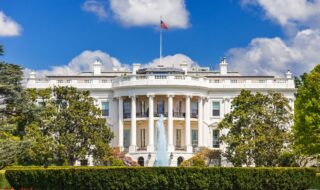July 1, 2021
Pennsylvania NFIB State Capitol Report
For years NFIB has pushed back of Governor Wolf’s expansion of the federal income threshold for employees who receive overtime payments.
Finally, our efforts have paid off, as we await Governor Wolf’s expected signature to the Administration Code, an essential part of the Pennsylvania budget.
On September 24, 2019, the US Department of Labor (DOL) announced a final rule that made 1.3 million American workers newly eligible for overtime pay. The federal rule became effective January 1, 2020, for certain workers making less than $35,568. This was an increase from $23,660 per year.
Governor Wolf went one step further with the Pennsylvania Overtime Rule, which would have increased this overtime eligibility threshold, again, to workers earning less than $40,560 annually on October 3, 2021, and to $45,500 annually on October 3, 2022. That is three increases in less than three years.
Now, after years of vocal opposition, Governor Wolf’s plan is one signature away from being rescinded. Ironically, that signature is his own.
After an overzealous state pandemic response which forced small businesses to shutter or work at drastically reduced operations, our demands for rescinding the overtime rule were heard by the members of the General Assembly who eliminated the Pennsylvania Overtime Rule in a critical piece of the 2021 PA budget package.
If signed, or let lapse into law, the federal income limits will stay as they are currently, pertaining to certain workers making less than $35,568 per year.
Another big win for NFIB Members, and your membership helped make this happen!
Legislation on the Move – A Quick Glimpse at Impactful Bills Moving
It can be exhausting trying to keep track of legislation on your own. That is why we are here advocating for good bills, and against bad bills. See below for a quick update:
HB 101 – Providing Agritourism Business with Limited Liability Protection – Awaits Governor Signature as of June 25, 2021.
HB 178 – Lengthening Time Periods for Unemployment Compensation Appeals from 15 days to 21 days. Awaits Governor Signature as of June 25, 2021.
HB 827 – Micro-Enterprise Development – Awaits Governor Signature as of June 25, 2021.
HB 1154 – Legislation to Make Mixed Drinks To Go Permanent – Only needs Senate Rules Committee approval before heading to the Governor’s desk. This legislation got amending in the Senate and the House did not concur and stripped language inserted by the Senate relating to ‘Ready to Drink’ cocktails. It will sit for at least the summer in this committee.
HB 1621 – 5G Deployment – Awaits Governor Signature as of June 25, 2021.
HB 604 – Transparent Framework for DEP Permit Decisions, Predictability – Reported from House Environment Resources and Energy on June 23, 2021.
SB 705 – Telemedicine – Reported from Senate Banking and Insurance on June 23, 2021.
SB 147 – Incorporating Risks of Opioid Use into Workers’ Compensation Safety Committee Requirements to receive a 5% WC discount. Awaits Governor Signature as of June 25, 2021.
HB 664 – Free the Lemonade Stands – Awaits Governor Signature as of June 23, 2021.
HB 977 – Allowing Restaurants to Operate During the Emergency Without Unreasonable Occupancy and Time Restrictions – Reported from House Commerce Committee on May 5, 2021. Awaits further action from the House.
HB 878 – Entertainment Venue Industry Recovery Program – Reported from the House Commerce Committee on May 5, 2021. Awaits further action from the House.
Still Work to be Done – Do You Want Higher UI Payments?
Pennsylvania finds itself in a familiar position: An insolvent Unemployment Compensation Trust Fund (UCTF).
While the General Assembly preserved more than $5 billion of federal relief funds this budget season, along with stashing away $2.52 billion into the Rainy-Day Fund, the Pennsylvania UCTF currently sits at a negative federal loan balance of nearly $1.6 billion.
Elected leaders are in positions to advance policies that support and sustain economic stability and local job creation, as small business makes up 99.6% of all business in the Commonwealth.
There is one simple action available to Pennsylvania that will provide the stability and support for the Commonwealth’s economy while positioning our state for a quicker and sustained economic recovery: allocate some portion of the unspent billions in unrestricted state aid provided for in the American Rescue Plan (ARP) Act to stabilize Pennsylvania’s insolvent UCTF, thus preventing, or at least mitigating, future unemployment insurance premium increases and assessments.
The Pennsylvania State Director Greg Moreland issued a letter to Members of the General Assembly and to Governor Wolf on June 10, 2021, regarding this issue.
For those who feel like we have been here before, we have. Pennsylvania made its final payment in January 2020 on the $2.8 billion in bonds issued to repay the federal government for unemployment compensation loans stemming from the Great Recession. Prior to the COVID-19 pandemic, the UCTF was nearly solvent. Unfortunately, the Commonwealth is in a similar predicament as we were after the Great Recession, as Pennsylvania recently borrowed well over a billion dollars to pay unemployment compensation benefits throughout the pandemic. The Department of Labor and Industry is currently projecting payments to the federal government of $1.118 billion in 2021, $1.326 billion in 2022, $1.418 billion in 2023, $1.274 billion in 2024, and $295 million in 2025. Without using additional reserve funds to pay down the Commonwealth’s federal debt, there is only one place those funds will be raised: employers.
According to a recent Center for Workforce Information & Analysis report from the Department of Labor & Industry dated May 11, 2021, employers currently face a proposed 3.5% average increase in their employer tax rate. This trend continues for each of the next ten years, too. Our small businesses have suffered through the pandemic, many closing for good. The Commonwealth needs to find a bipartisan solution to assist them in their greatest time of need and reduce additional fees.
Failure to act will result in surprise unemployment insurance premium increases for businesses just as they are beginning to restore operations, grow, and hire. The unfortunate reality of unemployment insurance is that businesses pay their premiums on a per-employee basis – higher charges, particularly those unplanned for, will serve as a perverse disincentive to hire and expand.
NFIB is a member-driven organization advocating on behalf of small and independent businesses nationwide.
Related Articles














